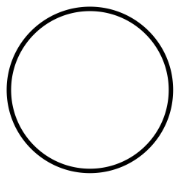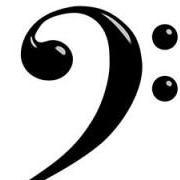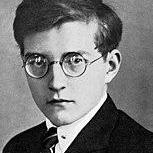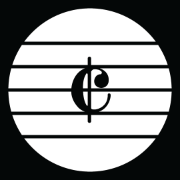-
Posts
510 -
Joined
-
Last visited
-
Days Won
30
caters last won the day on February 15 2023
caters had the most liked content!
About caters

Profile Information
-
Gender
Female
-
Favorite Composers
Beethoven, Mozart, Bach, Chopin
-
My Compositional Styles
Classical, Romantic
-
Notation Software/Sequencers
Musescore
-
Instruments Played
Piano
Recent Profile Visitors
8,505 profile views
caters's Achievements
-
I'm not really super familiar with the opus as a whole either, there's only really 2 quartets from the opus I'm very familiar with, the fourth in C minor(probably my favorite string quartet in general out of the entire opus) and this one, the sixth in Bb.
-
I mean really, I don't think there's a Scherzo that I haven't liked. But my favorites would definitely be Beethoven. Like for instance this C minor Allegro from Piano Sonata no. 13 in Eb, not marked Scherzo, but very Scherzo-like in my opinion Or this Scherzo that makes me dance every time I hear it: Or this string quartet Scherzo that I used as background music in the introductory video of my Analysis from an Arranger's Perspective series, which kind of got put on hold(Didn't use this exact performance mind you, but I did use this Scherzo):
-
Oh, that's not my channel actually, that's somebody else's channel, it just happened to have the theme which I used. My channel is more like MuseScore focused.
-
I was just thinking Beethoven influence with the coda cause you know contrast of chords and octaves against melody and countermelody, contrast of rhythm, contrast of dynamics with the subito fortissimo. I mean, the original theme had a pickup, and the first note in the measure afterwards feels like the downbeat, so I didn't really see much of a choice here, I felt the pickup was necessary, cause it's part of the theme and all. Honestly, I wasn't even checking for parallel octaves. I only tend to do that when Baroque style counterpoint is my goal, like in a canon or in a Baroque style dance piece, or a fugue. In variations pieces and such, I tend not to check laboriously for parallel octaves cause I figure that If I'm going to have a parallel perfect interval anyways I prefer the sound of parallel octaves over parallel fifths It's not really going to be noticed in a non-Baroque style piece I mean, the reason I did that was because the original melody ends on the third and here I was moving the melody into the bass for Var. III and IV. But maybe you're right. I do use slurs to indicate legato in strings and woodwinds. I've had a tendency to not do that for piano though, cause as a pianist, I myself play legato by default unless there's indications that it should be otherwise(staccato, repeated notes, slur over staccato to mean portato aka mezzo-staccato, performance practice for the piece(especially relevant in Bach), leaps that obviously can't be done legato(lots of that in Romantic Era repertoire), octave melodic statements(very common for me to see in Beethoven)). I'll play a Bach Allemande legato, just as I would a Mozart sonata or a Beethoven bagatelle or a Schubert impromptu, regardless of whether I see slurring or not and for as long as I don't see contrary indications(which I don't see slurring at all in Bach usually, minimal in Mozart left hand parts, Alberti Bass or otherwise, more so in Schubert, but plenty of non-slurred legato as well). When I do use slurs in piano parts, it's usually the long phrasing type, not the shorter legato type.
-
caters started following Fugue on Row Your Boat , Variations on a Mozart Theme , Does creativity lead to narcissism? and 4 others
-
I wrote this variations piece for Mozart's birthday using this as my theme: I slowed it down some in my variations to make the sixteenth notes more feasible to play. And I also took out the variations on the phrases Mozart did and put repeat signs in their place since I figured that I didn't need variations on 2 levels at once. Of course, my Beethoven influence was almost inevitably going to show up in these variations and what better place than the Coda where I can really hammer home that this is the end of it. I made sure to use fragments of Mozart's theme in the coda though, so as to connect it to everything else in more than just the key. What do you think of it?
-
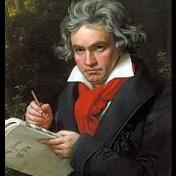
Does creativity lead to narcissism?
caters replied to PeterthePapercomPoser's topic in Composers' Headquarters
I think it is true. I've certainly gotten more attracted to my own music over the years. Yeah, I agree with that, and writing a masterpiece has never been a goal for me. Even when I think of writing a symphony or a concerto as goals, which they have been, I never think of them like they are masterpieces. They may very well turn out that way, but I don't think about whether they will or not, I just compose what I want to compose. I just approach my own music like it's just another piece. I don't think anything special about it in any way, even if it's written for an uncommon ensemble. My process often starts with me improvising a little idea or 2 at the piano. Then I think about whether I want it to be piano solo or for a different ensemble. Once I have that and the key figured out(the key is usually figured out with the improvisation itself, if I improvise an idea in C minor, I generally stick with C minor as the key of the piece for instance), I then write the piece, developing as I go. Take the C minor fantasia I'm currently composing for instance. It started off as an improvisation in C minor where I was cycling back and forth between 2 main ideas, a slow, legato idea that gains melodic momentum with each repetition and a fast, almost march-like, staccato idea. I then thought of expanding it out into a trio, so I did that, and my initial improvisation became the piano part of said trio. I do listen to my music a lot, about as often as I listen to pieces by other composers. I've never found my listening to be too much, it's never prevented me from having new ideas. It has however sometimes stopped the writing of one particular piece in its tracks before, especially early on as a composer in what I call my "Year of Ambition" where I was trying anything and everything that crossed my mind to compose. And when I look back at it, there are definitely pieces that I stopped before I got much further for one reason or another. Like my second piano sonata, stopped because of a K 545 resemblance. K 545 haunted me as a composer from when I was 12 and basically wrote a structural duplicate of K 545 in Bb major as what I would now call my Piano Sonata no. 0 all the way up until Mozart's birthday in 2019 when I finished writing my Piano Sonata no. 4 for which I purposefully borrowed from Mozart. Every time I'd try to write a sonata between those, I'd always be like "Damn it, K 545 hit me again, better stop before I get much further in this", not because I hated K 545, I don't, but rather, I just felt that it was a sign that I needed to study more sonatas rather than just listening to them, as at the time I wrote my Piano Sonata no. 4, K 545 was still the only sonata I really seriously studied. Or my String Quartet no. 1 that doesn't exist anymore because of the update issue on my old computer that made me lose a bunch of my scores, I stopped that because I just felt the string quartet was too hard. I still feel like it's incredibly hard. And indeed, sheer difficulty is one thing that even today will stop me in my tracks sometimes, it's why I have no string quartet pieces that I'd title String Quartet no. 1(at least not anymore), and it's why I have no finished fugues even with all my counterpoint and fugue studies over the years. But listening to my own works has never prevented me from having ideas for new compositions. If anything, it's encouraged it. I get so many ideas for compositions, that a lot of them end up being left unfinished without the intent of leaving them unfinished. -
I generally plan it out in a formal sense and sometimes also, as is the case with my first symphony, in a narrative sense, but a piano sketch, I've only done that for when I was stuck on deciding what to do next. I did such a thing for my symphony. But like the actual composing, vast majority of it is straight onto the orchestral score. Here's that bit of sketching I did for the symphony. I ultimately decided on Idea #1.
-
I like doing this too. In fact, that's usually what my first 2-4 variations are is embellishing the starting melody in increasingly quicker rhythms, so if I'm starting with a quarter note melody, I might go eighth notes, triplets, sixteenths, before moving on to something else like meter. Slower starting melody, more embellishing variations, faster melody, less.
-

Poll: What is most important in music?
caters replied to PeterthePapercomPoser's topic in Composers' Headquarters
Yeah, that was me. -
Yes it would. Fugues usually do this, breaking down the subject into motifs for the episodes if they exist, doing all kinds of things to the subject like augmentation, diminution, inversion etc. The first movement of Beethoven's Fifth is also a good example of something written by developing a motif in all kinds of ways as just about every single note of the first movement originates from the opening motif. And the Beethoven example is also a good example of how you can get contrast from the same motif as the second theme just takes the melodic aspect of the motivic statement of the horns(which is in turn an expansion of the opening motif of G x3, Eb, F x3, D), that Bb, Eb, F, Bb, inverts it so it ascends rather than descends, and connects the notes to form a new melody from the motif. It definitely could be, especially if you want to go down the route of fugue rather than something closer to the Beethoven. And if nothing else, it will mean you have more skills and can write things like string quartets and stuff better. It depends. In a fugue, not really. In the Beethoven example, the second movement uses much less of the opening motif than the other movements, mostly using it in the transitions from the Ab major theme to the triumphant C major that foreshadows the Finale.
-
I love this piece of yours. There's no part I dislike about it. It reminds me of Chopin, perhaps even a bit of Schubert. I don't see any problems with the engraving. I especially like the dynamic shifts and drama that occurs, I love listening to dramatic music more than any other kind of music. I listen to Romantic Era music a lot, especially Chopin. Beethoven as well if you count transitional with pieces in a Romantic Era style. In fact I tend to listen to Beethoven more than any other composer. I only really acquired a taste for Beethoven when I was a teenager and heard his C minor Piano Concerto for the first time, but ever since, he's been my favorite composer. I tend to compose in a Classical/Romantic style myself with some Baroque as well, so I understand where you're coming from in regards to it being hard to not write in a Romantic style. Interesting. I hope to hear your symphony someday. I'm also working on a symphony it turns out. It's been planned out for years and it's finally coming to fruition. As you might expect from me rambling on a bit about Beethoven and how he's my favorite composer, this symphony I'm writing is inspired by Beethoven.
-

How do you pick your instrumentation?
caters replied to PeterthePapercomPoser's topic in Composers' Headquarters
It really depends. Sometimes I start with one instrumentation and then change to another. Like my Weather Music Suite for instance, it started as a piano solo, then got up to a chamber ensemble of Piano + String Quartet + Flute, and then finally full orchestra. Or my Symphony no. 1, which was first conceived at the piano and became a full orchestra piece. I even have a PDF and MP3 I made of my second theme ideas for that symphony(which is mostly piano with commentary), eventually settled on the first one. However, often, I think of the instrumentation first, like I'll want to write say a woodwind quartet piece and then I'll write the musical material for said instrumentation. Kind of both? I'm obviously concerned with the musical material. But I also like experimenting with different instrument combinations, like I did for Flute and Cello or am doing for Flute Trio(as in a trio of flutes, not a trio with a single flute). Yes and no. Yes in that I'm satisfied with writing some or even a lot of repertoire for standard groups, but no in the sense that I wouldn't be satisfied if that's all I wrote. Yes, I've felt this several times, like with the Weather Music Suite I already mentioned. Yes. I don't know, I've never really done such a thing. Sometimes, especially if I'm trying to write a solo piece. Like Cello for instance. I have no problems really writing idiomatically for Cello as part of an ensemble, but solo Cello, I do have difficulties with. Underrated, I think the Woodwind Quartet is an underrated ensemble. Overrated, eh, I can't think of any. I don't think the orchestra and string quartet are overrated personally. Most challenging, definitely quartets, especially string quartet. Piano Trio also as that's essentially a quartet at minimum in terms of compositional density. Also any non-keyboard Solo, as with that, I have to think about how to get melody, bass, and figuration into a single line or maybe at most 2 lines outside of chords for strings. Least challenging, trios(those without piano anyway) and orchestra. Trio because I feel it's perfectly balanced in terms of instrumental roles, I never have to double roles with a trio. And orchestra because of all the instrumental colors. Just a couple years ago, I probably would have said Trio and Solo Piano, but ever since I've become comfortable writing for orchestra, it's become just as easy, maybe even easier than Solo Piano for me to compose for. Piano for solo, otherwise, not really, I compose about as much for orchestra as I do for chamber ensembles. -

Rename it to Art of Canon or stick with the original title?
caters replied to caters's topic in Composers' Headquarters
I do think I want to stick to baroque counterpoint if possible here given the Bach inspiration for this whole set. I know that means I'll need to correct those dissonances, but is there anything else I would need to fix? -
Yeah. That's exactly how I decided on the order that I did, was musical reasoning like that, because I was unsure at first how I should order the Bourree, Minuet, and Gavotte. These were my possible orderings: Allemande - Courante - Sarabande - Bourree - Minuet - Gavotte - Gigue Allemande - Courante - Sarabande - Bourree - Gavotte - Minuet - Gigue Allemande - Courante - Sarabande - Minuet - Bourree - Gavotte - Gigue Allemande - Courante - Sarabande - Gavotte - Bourree - Minuet - Gigue Allemande - Courante - Sarabande - Minuet - Gavotte - Bourree Gigue Allemande - Courante - Sarabande - Gavotte - Minuet - Bourree Gigue These 2 I felt gave too little contrast with the Gigue(Both fast, both duple, both use dotted rhythms a lot, simple vs complex): Allemande - Courante - Sarabande - Minuet - Gavotte - Bourree - Gigue Allemande - Courante - Sarabande - Gavotte - Minuet - Bourree - Gigue -> This is the one I saw in Bach, and while it worked for him, I didn't think it would work for me These 2 I felt gave too much contrast with the Gigue(slow vs fast, triple vs duple, simple vs complex and imitative, dotted rhythm abundance vs rarity): Allemande - Courante - Sarabande - Gavotte - Bourree - Minuet - Gigue Allemande - Courante - Sarabande - Bourree - Gavotte - Minuet - Gigue This I felt was okay, but not ideal as I then have Moderate - Fast - Slow - Moderate - Fast - Moderate - Fast, too predictable: Allemande - Courante - Sarabande - Minuet - Bourree - Gavotte - Gigue Which left me with this as my final choice: Allemande - Courante - Sarabande - Bourree - Minuet - Gavotte - Gigue I like how this option kind of mirrors the whole suite, because you have your Sarabande and Minuet, the slower dances, Courante and Gavotte, faster dances, and Allemande and Gigue, the contrapuntally complex, sometimes fugal movements.
-
I'm also working on a suite. It will have at least 7 movements, I still have to figure out whether I want something like a Toccata in there or not(I remember somebody suggesting that I add an improvisatory piece like a Toccata either at the start or mid-suite). And I have finally decided on the order of the 7 dance movements. This is the order: Allemande Courante Sarabande Bourree Minuet Gavotte Gigue I have over half the Allemande finished and I just started on the Minuet. I'm freeing myself to write the movements in any order, which I wouldn't do for a sonata, but is definitely appropriate for a suite.





